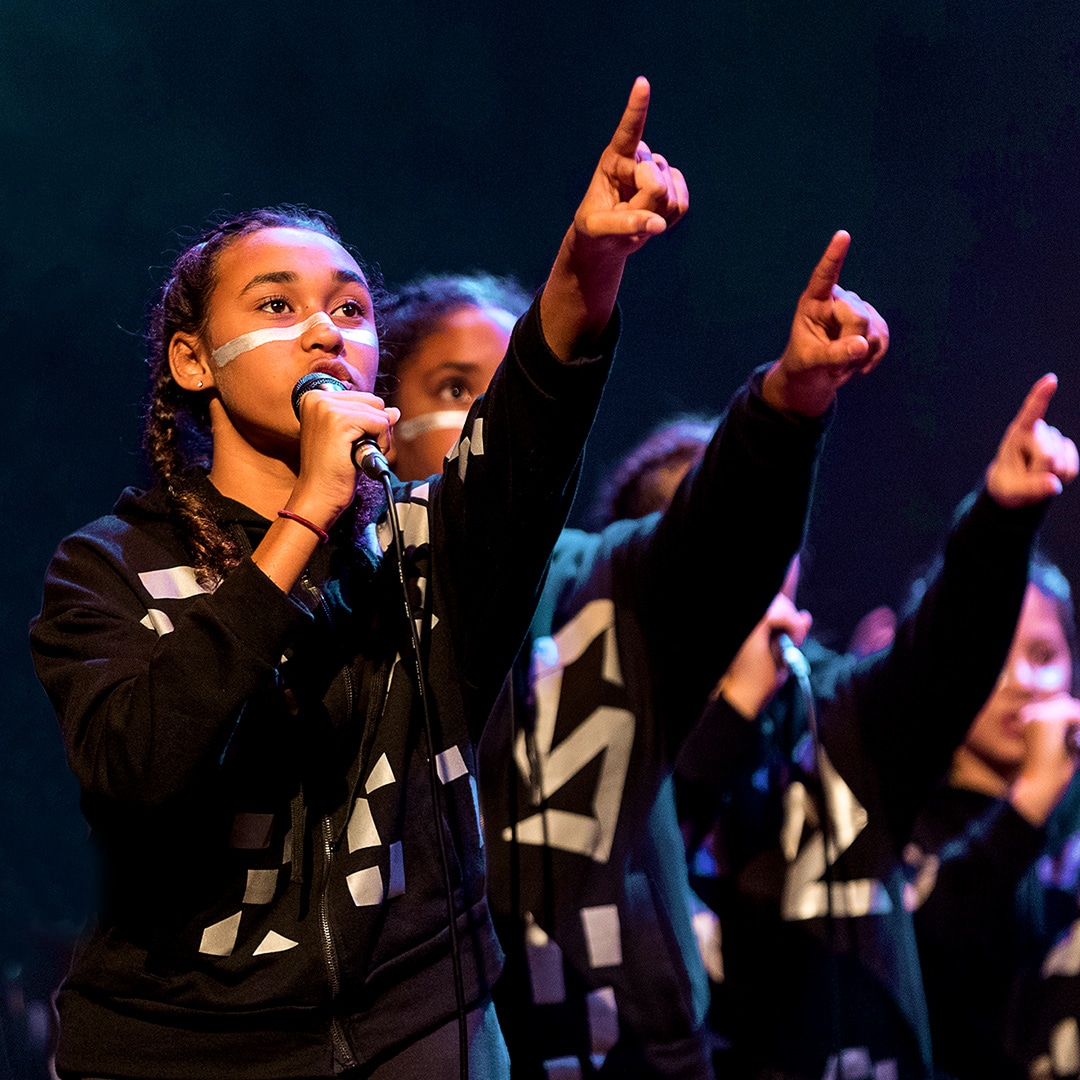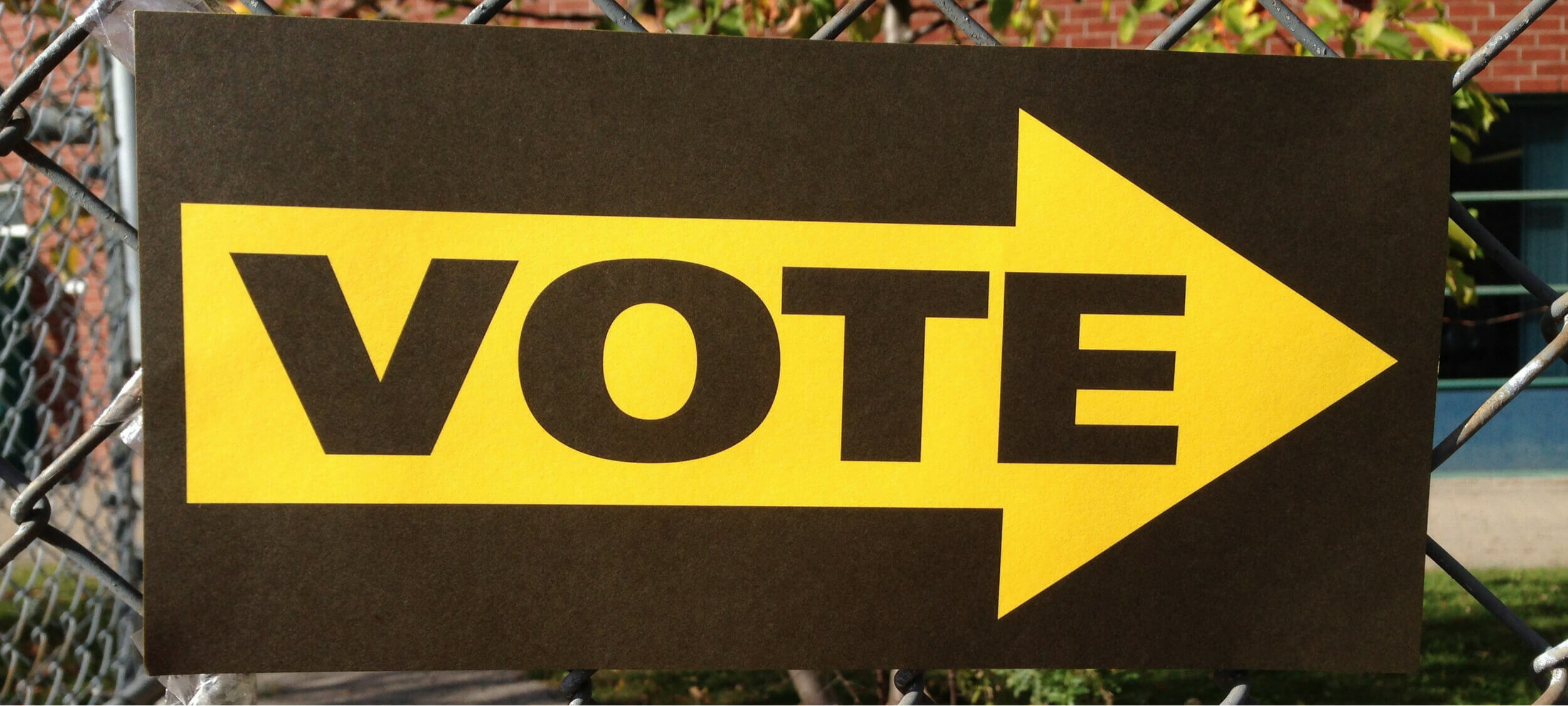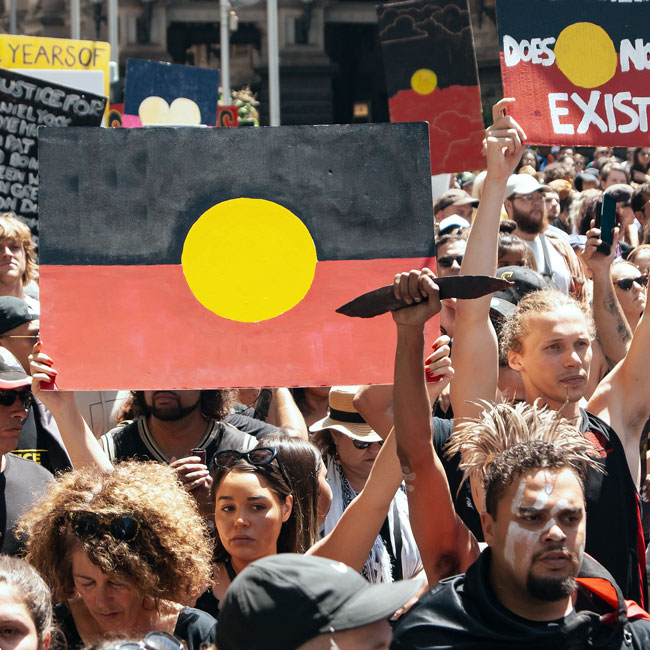Big Thinker: Francesca Minerva

Big Thinker: Francesca Minerva
Big thinkerPolitics + Human RightsScience + Technology
BY The Ethics Centre 27 OCT 2021
Francesca Minerva is a contemporary bioethicist whose work largely includes medical ethics, technological ethics, discrimination and academic freedom.
A research Fellow at the University of Milan and the co-founder and co-editor of the Journal of Controversial Ideas, Francesca Minerva has published extensively within the field of applied ethics on topics such as cryonics, academic freedom, conscientious objection, and lookism. But she is best (if somewhat reluctantly) known for her work on the topic of abortion.
Controversy over ‘After-birth Abortion’
In 2012, Minerva and Alberto Giubilini wrote a paper entitled ‘After-birth Abortion: why should the baby live?’ The paper discussed the moral status of foetuses and newborn babies and argued that after-birth abortion (more commonly known as infanticide) should be permissible in all situations where abortion is permissible.
In the parts of the world where it is legal, abortion may be requested for a number of reasons, some having to do with the mother’s well-being (e.g., if the pregnancy poses a risk to her health, or causes emotional or financial stress), others having to do with the foetus itself (e.g., if the foetus is identified as having a chromosomal or developmental abnormality).
Minerva and Giubilini argue that if it’s permissible to abort a foetus for one of these reasons, then it should also be permissible to “abort” (i.e., euthanise) a newborn for one of these reasons.
This is because they argue that foetuses and newborns have the same moral status: Neither foetuses nor newborns are “persons” capable of attributing (even) basic value to their life such that being deprived of this life would cause them harm.
This is not an entirely original argument. Minerva and Giubilini were mainly elaborating on points made decades ago by Peter Singer, Michael Tooley and Jeff McMahan. And yet, ‘After-birth Abortion’ drew the attention of newspapers, blogs and social media users all over the world and Minerva and Giubilini quickly found themselves at the centre of a media storm.
In the months following the publication, they received hundreds of angry emails from the public, including a number of death threats.
The controversy also impacted their careers: Giubilini had a job offer rescinded and Minerva was not offered a permanent job in a philosophy department because members of the department “were strongly opposed to the views expressed in the paper”. Also, since most of the threatening emails were sent from the USA, they were advised not to travel to the USA for at least a year, meaning that they could not attend or speak at academic conferences being held there during that period.
So why did ‘After-birth Abortion’ attract so much attention compared to older publications on the same topic? While the subject matter is undoubtedly controversial, Minerva believes the circulation of the paper had more to do with the internet than with the paper itself.
Academic Freedom and the Journal of Controversial Ideas
“The Web has changed the way ideas circulate.” Ideas spread more quickly and reach a much wider audience than they used to. There is also no way to ensure that these ideas are reported correctly, particularly when they are picked up by blogs or discussed on social media. As a result, ideas may be distorted or sensationalised, and the original intent or reasoning behind the idea may be lost.
Minerva is particularly concerned about the impact that this may have on research, believing that fear of a media frenzy may discourage some academics from working on topics that could be seen as controversial. She believes that, in this way, the internet and mass media may pose a threat to academic freedom.
“Research is, among many other things, about challenging common sense, testing the soundness of ideas that are widely accepted as part of received wisdom, or because they are held by the majority of people, or by people in power. The proper task of an academic is to strive to be free and unbiased, and we must eliminate pressures that impede this.”
In an effort to eliminate some of this pressure, Minerva co-founded the Journal of Controversial Ideas, alongside Peter Singer and Jeff McMahan. As the name suggests, the journal encourages submissions on controversial topics, but allows authors to publish under a pseudonym should they wish to.
The hope is that by allowing authors to publish under a false name, academics will be empowered to explore all kinds of ideas without fearing for their well-being or their career. But ultimately, as Minerva says, “society will benefit from the lively debate and freedom in academia, which is one of the main incubators of discoveries, innovations and interesting research.”
Ethics in your inbox.
Get the latest inspiration, intelligence, events & more.
By signing up you agree to our privacy policy
You might be interested in…
Big thinker
Politics + Human Rights, Society + Culture
Big Thinker: Slavoj Žižek
Opinion + Analysis
Relationships, Science + Technology
The ethics of exploration: We cannot discover what we cannot see
Opinion + Analysis
Science + Technology
The cost of curiosity: On the ethics of innovation
Opinion + Analysis
Climate + Environment, Politics + Human Rights, Relationships, Society + Culture
The youth are rising. Will we listen?
BY The Ethics Centre
The Ethics Centre is a not-for-profit organisation developing innovative programs, services and experiences, designed to bring ethics to the centre of professional and personal life.
COP26: The choice of our lives
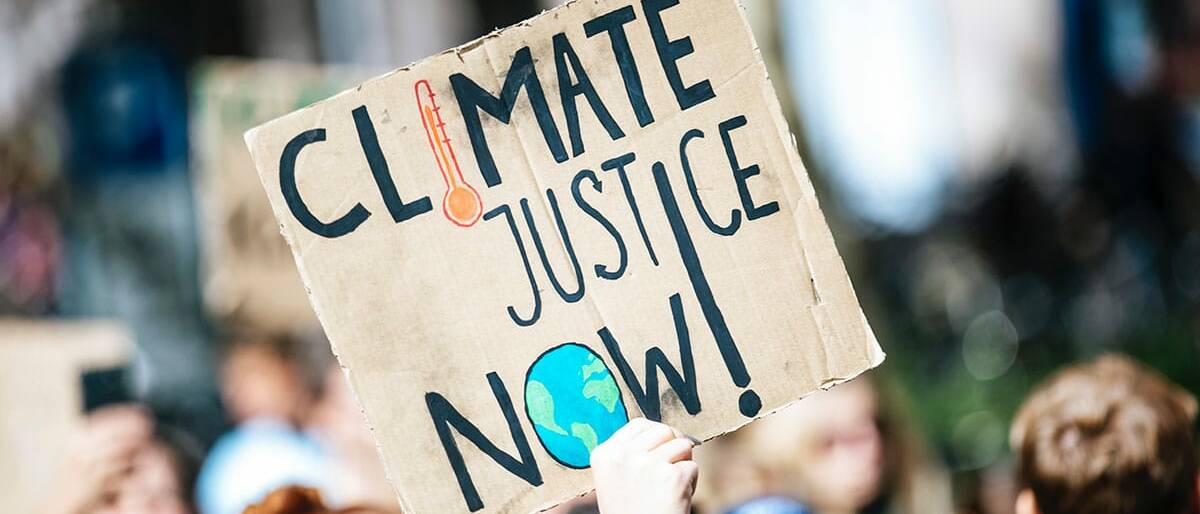
COP26: The choice of our lives
Opinion + AnalysisPolitics + Human Rights
BY Simon Longstaff 25 OCT 2021
There is such a thing as truth. It might be difficult to discern.
Aspects of the truth might vary depending on one’s perspective. However, there are some things that can be known with a certainty sufficient to guide practical action. One of those truths is that life is fragile. The more complex its form, the greater its vulnerability. In the web of life, the severing of one strand can lead the whole to unravel. Cataclysmic failure is not inevitable. It’s just possible – and that is worth knowing. Those who gamble with life take a mighty risk.
In ethics – facts matter. They really matter. Too often, they are ignored by those who think that good intentions are enough. By themselves, good intentions are not enough.
These and other matters are worth bearing in mind as a selection of the world’s leaders gather in Glasgow for COP26. The overwhelming consensus of the world’s leading climate scientists is that life-as-we-know-it is imperiled by the cumulative effects of greenhouse gases. We, humans, are the major source of those emissions. We are the most powerful force on this planet. Our choices shape and make the world what it is.
Ethics is about how these choices are made. It identifies and examines the drivers of choice and ultimately helps us to discern what is good or bad, right or wrong, in the choices we make. At its most fundamental level, ethics underpins the world we make.
So, in every respect, what happens in Glasgow is a matter of ethics.
It is also a matter of politics – and this is where the divorce between ‘ethics’ and ‘politics’ is a cause for concern. The division was never intended to be as great as it has become. For Aristotle, ‘ethics’ and ‘politics’ were intended to be two sides of the same coin. Ethics was concerned with questions about the good life for an individual. Politics was also concerned about questions to do with the good life – but as applied to the community as a whole.
In the lead up to COP26 in Glasgow, we have witnessed a very partial kind of politics that has no apparent concern for the national interest. Instead, the debate about climate change has been recast as a contest between country and city.
In prosecuting their case, the National Party has sought to remain part of the national government while simultaneously trashing the most basic obligation of governments: that they govern for the sake of all.
I should make it clear that when it comes to climate policy, the Ethics Centre has been one of the earliest and most steadfast advocates for a just and orderly transition to a more sustainable future – for everyone affected, not just those living under the National Party’s wing.
The attempt to weaken Australia’s position in Glasgow hinges on a couple of arguments. First, the claim is made that anything Australia does to reduce its contribution to global warming will be ‘futile’ – as our national impact is tiny in comparison to major polluters such as China and India. Second, it is argued that the cost to the economy is just too great to bear – especially for those working in ‘climate exposed’ industries. The National Party then adds to this critique by stating that people living in the cities are asking their country cousins to carry a disproportionate share of the burden.
History reveals what is wrong with such arguments. For example, consider the decision, by a Labor Government, unilaterally to slash tariffs and embark upon an ambitious program to promote free trade. The decision to do so was grounded in a commitment to the national interest and the reasonable belief that, in the long term, the benefits would outweigh the costs – and be shared by all. Back then (as now), Australia represented only around 3% of global trade. In that sense, slashing Australian tariffs could have been presented as a ‘futile gesture’. After all, why cut tariffs in advance of the world’s major economies? And that argument was made by those who opposed trade liberalisation at the time – the Coalition parties.
So, who are the major beneficiaries of free trade? It is the people whom the National Party claims to represent; those working in agriculture, mining and minerals. Who paid the price? Hundreds of thousands of people who lost their jobs in manufacturing – mostly in industries like textiles, clothing, footwear, automotive, etc. And where did most of these people live? In metropolitan areas. So it has been ever since. Australia’s free trade deals inevitably aim to maximise the incomes of people living in rural and regional Australia while leaving the price to be paid by people living in the cities.
Have we heard anyone from the National Party offering sympathy for those who have paid such a high price for regional prosperity? Not a word. Indeed, not a word from anyone. Why the silence? Well, you could put it down to political indifference. Or, it could be that there is now a broad consensus that despite the pain of transition (which typically has been disorderly and unjust), the national interest has been served.
Which brings us back to Glasgow.
Nearly everyone – other than the Federal Government – seems to agree that, for Australia, Glasgow presents a golden opportunity. The adoption of strong, binding targets could enable Australia to become one of the most prosperous nations the world has ever known. We have access to unlimited renewable energy, vast natural resources, a stable socio-economic environment, educated people and so on. We have everything needed to prosper. Indeed, just as it was in Australia’s national interest unilaterally to cut tariffs and embrace free trade, so it is in our national interest to embrace ambitious climate targets – not just for 2050 but by 2030. The stronger the drivers, the better the longer-term outcome.
Yet, even as I write these words, I wonder if this is to miss the point?
As noted above, Aristotle thought ‘ethics’ and ‘politics’ should concern themselves with questions about the ‘good life’. But for whom? For people in the bush? For Australians? For humanity? Or is our duty to ‘life’ itself? Is not the truth about global warming’s threat to life on this planet the ultimate ethical foundation upon which to build strong commitments in Glasgow?
When it comes to life on this planet, there is no ‘town’ and ‘country’, no ‘Coalition and ‘Labor’, no ‘Us’ and ‘Them’. We are all in this together.
I realise that politics is the ‘art of the possible’ – and that the average politician is acutely sensitive to the sentiments of their electorate. However, there are times when, at their best, politicians enlarge our possibilities and in doing so, lead their electorate to a better place. This is why politics used to be considered the most noble calling of a citizen.
Our Prime Minister, Scott Morrison, has been wrestling with a form of politics that falls well short of that ideal. It is open to him to choose something better. That is both the gift (and curse) of his humanity. In Glasgow we will see not only what kind of politician Scott Morrison can be on our behalf. We will also get the measure of his capacity to lead. But most importantly, he will reveal the character of his humanity.
Ethics in your inbox.
Get the latest inspiration, intelligence, events & more.
By signing up you agree to our privacy policy
You might be interested in…
Opinion + Analysis
Health + Wellbeing, Politics + Human Rights
Feminist porn stars debunked
Big thinker
Politics + Human Rights
Big Thinker: Peter Singer
Big thinker
Politics + Human Rights, Society + Culture
Big Thinker: Slavoj Žižek
Opinion + Analysis
Politics + Human Rights, Relationships, Society + Culture
Of what does the machine dream? The Wire and collectivism
BY Simon Longstaff
Simon Longstaff began his working life on Groote Eylandt in the Northern Territory of Australia. He is proud of his kinship ties to the Anindilyakwa people. After a period studying law in Sydney and teaching in Tasmania, he pursued postgraduate studies as a Member of Magdalene College, Cambridge. In 1991, Simon commenced his work as the first Executive Director of The Ethics Centre. In 2013, he was made an officer of the Order of Australia (AO) for “distinguished service to the community through the promotion of ethical standards in governance and business, to improving corporate responsibility, and to philosophy.” Simon is an Adjunct Professor of the Australian Graduate School of Management at UNSW, a Fellow of CPA Australia, the Royal Society of NSW and the Australian Risk Policy Institute.
Big Thinker: Judith Butler

Big Thinker: Judith Butler
Big thinkerHealth + WellbeingPolitics + Human RightsRelationships
BY The Ethics Centre 19 OCT 2021
Judith Butler (1956—present) is an American academic and activist, who has made considerable contributions to philosophy, literature, gender and feminist studies.
They are the Maxine Elliot Professor in the Department of Comparative Literature and the Program of Critical Theory at the University of California, Berkeley and holds the Hannah Arendt Chair at the European Graduate School in Sass Fee, Switzerland.
Although Butler has an impressive number of publications to their name, they are best known for their book, Gender Trouble: Feminism and the Subversion of Identity (1989; 1990).
Gender Trouble
Gender Trouble explores the traditional understandings of sex and gender in feminist theory. Butler argues against the view that gender is based on (or follows from) our biology, claiming instead that gender is produced by performance – that we construct gender by behaving and expressing ourselves in certain ways.
This “gender performativity” has been interpreted in different ways. Some have taken performativity to mean that gender is determined by society and therefore completely outside of the individual’s control (i.e., you are the gender you have been assigned).
Others have understood performativity to mean that gender can be chosen or changed at will, since it has no biological basis. Members of the trans community have critiqued this understanding, saying that conceiving of gender as something that can be changed voluntarily makes it seem superficial or fake and risks undermining how important someone’s gender identity can be to their sense of self.
More recently, Butler has clarified their own understanding of gender performativity, stating:
Butler’s understanding of gender performativity lies somewhere in between the two previous views. For Butler, gender is not something that is fixed by society and unalterable on an individual level, but it is also not something superficial that can be changed like a piece of clothing. Instead, gender is created through sustained practices that make gender appear as though it’s something natural or internal to us, but really these practices are influenced and regulated by society and culture. By recognising this, Butler says, we can collectively start to change gender norms so that we can each find a way to live more authentically.
Though the term ‘non-binary’ did not exist at the time Butler published Gender Trouble, in recent years Butler has changed their legal gender to non-binary and uses she/they pronouns.
After Gender Trouble
Gender Trouble had a profound influence over the development of feminist theory and is widely considered to be one of the founding texts of queer theory. Since its publication in 1989, Gender Trouble has been translated into 27 languages and has become a staple text for feminist and gender studies courses all over the world.
As a result, Butler has achieved a fame that transcends the academic community – and it hasn’t always been positive.
For some people, Butler’s views are considered dangerous or threatening to the traditional way of life. In 2017, evangelical Christian protestors burnt an effigy of Butler outside an academic conference they were attending in Brazil, while chanting “take your ideology to hell.”
Despite this, Butler continues to write and speak about gender, feminist and queer issues and is active in the resistance against the anti-gender movement – an international movement that opposes gender equality, LGBTQIA+ rights and sexual and reproductive freedoms.
Butler has, for many years, been a vocal advocate for the rights of marginalised people and has been active in anti-war and anti-racism movements.
Their most recent book, The Force of Non-violence: An Ethico-Political Bind (2020), argues that social inequality cannot be separated from our understanding of violence. For Butler, violence is not just swinging fists and wielding weapons. Violence is any action (or inaction) that harms another – including public policies and institutional practices that create social inequalities.
In response to this kind of violence, Butler advocates nonviolence. Importantly, however, Butler does not understand nonviolence as something passive. Nonviolence requires an aggressive commitment to radical equality and an “opposition to biopolitical forms of racism and war logics that regularly distinguish lives worth safeguarding from those that are not.”
Butler wants us to recognise that we are all in this together and build a world that is reflective of this – a world that is committed to radical equality.
Ethics in your inbox.
Get the latest inspiration, intelligence, events & more.
By signing up you agree to our privacy policy
You might be interested in…
Opinion + Analysis
Relationships
Ask an ethicist: How should I divvy up my estate in my will?
Opinion + Analysis
Business + Leadership, Health + Wellbeing, Relationships
Office flings and firings
Opinion + Analysis
Relationships
The ethics of friendships: Are our values reflected in the people we spend time with?
Opinion + Analysis
Climate + Environment, Health + Wellbeing
Gen Z and eco-existentialism: A cigarette at the end of the world
BY The Ethics Centre
The Ethics Centre is a not-for-profit organisation developing innovative programs, services and experiences, designed to bring ethics to the centre of professional and personal life.
Vaccination guidelines for businesses

Vaccination guidelines for businesses
Opinion + AnalysisBusiness + LeadershipPolitics + Human Rights
BY Simon Longstaff 14 OCT 2021
Businesses are having to address complex ethical questions about the extent to which a person’s vaccination status should be a condition of employment.
Here are some guidelines to consider:
1. There is a difference between a mandatory requirement (where there is no choice) and a condition of employment (which people can choose to meet as they think best).
Many jobs impose conditions of employment that relate to a person’s health status (including whether or not they have been vaccinated).
2. Respect and promote the maximum degree of freedom of employees – limited only by what is required to meet one’s obligations to others.
In determining this it’s important to consider:
- The nature of any duties owed to other people – including employees, customers, and members of the community more generally.
- The specific context within which people will come into contact with your employees e.g. frequency, proximity, location – and estimate the way these variables shape ‘the risk envelope’.
3. Determine if a legitimate authority (e.g. a government) has made any rules.
This includes Legislation, regulation, public health orders, etc. that determine how the business must act. For example, governments may set license conditions that ‘tie the hands’ of specific employers.
4. Actively seek alternative means by which employees might perform their roles, even if they are not vaccinated.
Note, alternatives must be practical and affordable.
5. Determine who bears the burden (including the cost) of alternative measures.
For example, should employees who choose not to be vaccinated be required to be masked, or to use rapid antigen testing at their expense?
6. Consider how roles might be reassigned amongst the unvaccinated.
With priority given to those with medical exemptions.
7. Treat every person with respect – ensuring that no person is ridiculed or marginalised because of their choice.
But note that respect for one person or group does not entail agreement with their position; nor does it void one’s obligations to others or your right, as an employer, to advance your own interests.
8. Be prepared to adjust your own position in response to changing circumstances.
Including evidence based on the latest medical research relating to vaccine safety and efficacy, etc.
Read more on the difference between compulsory and conditional requirements here.
Ethics in your inbox.
Get the latest inspiration, intelligence, events & more.
By signing up you agree to our privacy policy
You might be interested in…
Opinion + Analysis
Business + Leadership, Society + Culture
The Ethics Institute: Helping Australia realise its full potential
Big thinker
Politics + Human Rights
Big Thinker: Peter Singer
Opinion + Analysis
Business + Leadership, Health + Wellbeing
The super loophole being exploited by the gig economy
Opinion + Analysis
Business + Leadership
John Elkington on business sustainability and ethics
BY Simon Longstaff
Simon Longstaff began his working life on Groote Eylandt in the Northern Territory of Australia. He is proud of his kinship ties to the Anindilyakwa people. After a period studying law in Sydney and teaching in Tasmania, he pursued postgraduate studies as a Member of Magdalene College, Cambridge. In 1991, Simon commenced his work as the first Executive Director of The Ethics Centre. In 2013, he was made an officer of the Order of Australia (AO) for “distinguished service to the community through the promotion of ethical standards in governance and business, to improving corporate responsibility, and to philosophy.” Simon is an Adjunct Professor of the Australian Graduate School of Management at UNSW, a Fellow of CPA Australia, the Royal Society of NSW and the Australian Risk Policy Institute.
The erosion of public trust
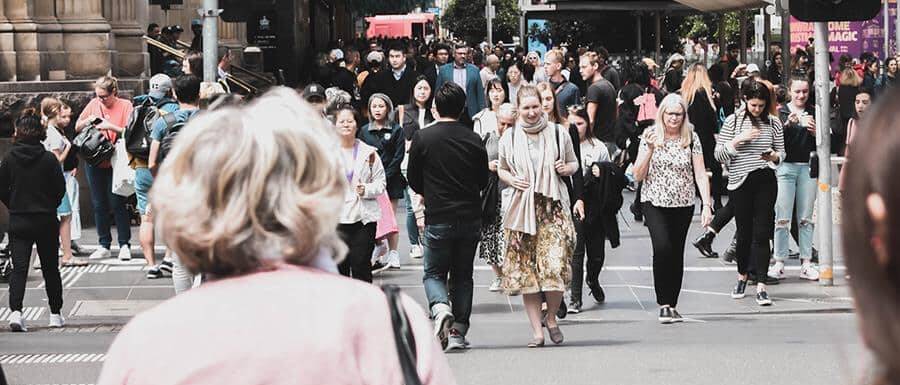
The erosion of public trust
Opinion + AnalysisPolitics + Human Rights
BY Simon Longstaff The Ethics Centre 17 SEP 2021
Christian Porter’s decision to accept an anonymous donation of one million dollars to help cover his personal legal costs has not merely raised questions about his personal judgement.
It has, once again, exposed larger issues about the extent to which some of our government ministers understand the demands of political leadership in a democracy.
To be clear, I do not see anything wrong, in general, with a person accepting financial support to cover the costs of litigation. Nor is there anything problematic about offering such support. There is not even a problem, in general, with such support being anonymous. So, if Mr. Porter were just an ‘ordinary citizen’, there would be little to discuss.
The controversy is solely related to the fact that Mr. Porter is a Member of Parliament and was a cabinet minister in the Federal Government led by Prime Minister Scott Morrison – a position that Porter freely chose to accept, presumably with knowledge of all that it requires. The fact that Mr. Porter resigned from the Ministry allays one source of concern. However, the issues at the heart of this controversy extend well beyond the treasury benches to encompass all serving MPs.
In fact, Mr. Porter’s case raises important issues of principle; namely, whether or not politicians (of all political persuasions) should be allowed, in our democracy, to receive substantial amounts of money by way of anonymous donations. In this, the acid test is not what is convenient (or not) for politicians and their supporters. Rather, the only consideration should be in relation to what supports, or undermines, the quality of our democracy.
Now, it could turn out to be the case that Mr. Porter has not broken any formal rules. Whether or not this is the case will be determined in due course. Yet, to think that this is simply a matter of compliance is, I believe, to miss the point. We are living through a time when the exemplary power of leadership is a potent force for both good and ill. And some of our politicians just don’t seem to understand this!
Ideally, I would prefer to cite examples from across the political spectrum. I am sure that they exist. Unfortunately, the spotlight tends to fall on those in power. So, when a government minister doles out public funds for a private political purpose it has a chilling effect on public trust in those who govern, even if what was done is technically within the rules. Then we have the case of Christian Porter – which, as noted above, seems to offer evidence of either ignorance of, or indifference to, basic standards of good governance.
We might all genuinely sympathise with the desire of a dad to be with his children on Father’s Day. However, when the Prime Minister takes advantage of an opportunity not available to hundreds and thousands of their fellow-citizens, it leaves the impression that there is one rule for the powerful and another for the rest of us.
As noted above, the issue I am concerned about does not concern compliance with the rules. It’s not that such questions are unimportant. It’s just not the focus of this article. Rather, I am worried about the effects of a continuing erosion of trust in our government. Some people might think this to be a trivial matter. Perhaps it is when nothing much is at stake. However, those are not the times in which we are living.
The COVID19 pandemic has been the most significant threat to Australia in the past 50 years. Furthermore, the response to that threat has largely lain in the hands of the community as a whole. Governments can lead, they can put in place policies and procedures, they can supply critical resources like vaccines and safe quarantine facilities. Yet, none of that will be to good effect unless ordinary Australians accept the costs of lockdowns, wear masks, remain socially distant, be vaccinated, etc. This requires the public to look beyond self-interest. The community as a whole has to have a concern for the general welfare of society. Most importantly, we need to be able to trust the judgement and advice of those who govern.
At least in part, this depends on us believing that our political leaders are in this with us; that we are ‘all in the same boat’.
Also, we need to believe that our politicians will act solely in the public interest and that if, for some reason, they do not, then they will be held to account with at least the same degree of rigour that applies to the rest of us.
Leaders should not wait until a time of crisis to demonstrate their integrity. Every decision – including those that do not ‘seem to matter’ – builds (or undermines) the ethical capital upon which politicians must draw at times such as these. That is, the character of political leadership is established in fine detail over time. Mere compliance with the rules is the bare minimum – nothing more. The real ‘weight’ lies in countless acts of discretion not merely in terms of substance but equally in terms of their symbolic significance.
We should all realise that this imposes an extraordinary burden on our politicians. Their public service requires more of them than we demand of ourselves. However sympathetic we might be to their plight, that is the price that must be paid by those who choose to govern. Alas, this is the lesson that a number of our political leaders seem not to have learned.
Ethics in your inbox.
Get the latest inspiration, intelligence, events & more.
By signing up you agree to our privacy policy
You might be interested in…
Opinion + Analysis
Politics + Human Rights, Society + Culture
Play the ball, not the person: After Bondi and the ethics of free speech
Explainer
Politics + Human Rights
Ethics Explainer: Anarchy
Explainer
Society + Culture, Politics + Human Rights
Ethics Explainer: Moral Courage
Opinion + Analysis
Politics + Human Rights, Science + Technology
Ukraine hacktivism
BY Simon Longstaff
Simon Longstaff began his working life on Groote Eylandt in the Northern Territory of Australia. He is proud of his kinship ties to the Anindilyakwa people. After a period studying law in Sydney and teaching in Tasmania, he pursued postgraduate studies as a Member of Magdalene College, Cambridge. In 1991, Simon commenced his work as the first Executive Director of The Ethics Centre. In 2013, he was made an officer of the Order of Australia (AO) for “distinguished service to the community through the promotion of ethical standards in governance and business, to improving corporate responsibility, and to philosophy.” Simon is an Adjunct Professor of the Australian Graduate School of Management at UNSW, a Fellow of CPA Australia, the Royal Society of NSW and the Australian Risk Policy Institute.
BY The Ethics Centre
The Ethics Centre is a not-for-profit organisation developing innovative programs, services and experiences, designed to bring ethics to the centre of professional and personal life.
The rights of children

The rights of children
Opinion + AnalysisPolitics + Human Rights
BY Camilla Nelson and Catherine Lumby The Ethics Centre 16 SEP 2021
Camilla Nelson and Catherine Lumby’s new book Broken is a “devastating account of how Australia’s family courts fail children, families and victims of domestic abuse”. In light of Parliament’s recent decision to merge the Family Court and Federal Circuit Court, they wrote about the legal and ethical imbalance in recognising children’s rights.
“Alex” was 15 years old when her parents went to court. By then, her childhood memories included a recollection of her father “holding a knife to [her mother’s] throat”, and a series of violent altercations that resulted in her mother being taken to hospital with her face “swollen, bleeding and bruised”.
In court, the judge accepted that Alex was thoughtful, articulate and mature beyond her years. He acknowledged that Alex’s “post-traumatic stress symptoms” – including “anxiety”, “panic attacks” and “hypervigilance” – became “elevated” whenever her father was near. He even stated he was “satisfied” that Alex’s wish to have no contact with her father was “genuine”. But the court still forced Alex into child-inclusive mediation with her father followed by a defended trial – because her father wanted it; and the law apparently required it.
Although in Alex’s case, the judge eventually decided that forcing Alex into a relationship with an alleged perpetrator of harm was not in Alex’s “best interest”, this case illustrates the extraordinary asymmetry in a law that states “children have the right to know and be cared for by both their parents” but does not allow mature children – like Alex – the right to rationally and reasonably refuse this relationship when a parent is abusive and violent.
A glaring contradiction
Alex’s case – and others like it – draws attention to the glaring contradiction at the centre of family law that leads to poor decision-making and dangerously spiralling litigation. These are the so called “primary considerations” in the child’s best interest factors set out in Part VII of the Family Law Act – which, at worst, pits the child’s safety against their parents’ desires, or, at best, assumes a child’s interests will be identical with that of their parents, when this is simply not the case.
Perhaps because family law constructs itself as a contest between separating parents, it lags behind other legal jurisdictions in the recognition it gives to children’s rights. In legal matters outside the family courts, parental authority is broadly understood to diminish as a child’s capacity to make decisions for themselves develops. This is most obviously recognised in the right of a mature child to access medical treatment, regardless of their parents’ views. More starkly, the age of criminal liability in Australia is ten – far too young, according to experts and advocates – and the age of criminal responsibility is 14. In this context, it seems wildly incongruous for the family courts to conclude that a mature minor – such as Alex – is incapable of making age-appropriate decisions about where they will live and who they will see.
When Gough Whitlam and Lionel Murphy drew up the Family Law Act – this was not the case. Back in the 1970s mature minors like Alex were given more – not less – rights under Australian Family Law. In the Act as it was drafted in 1975, section 64(1)(b) stated: “where the child has attained the age of 14 years, the court shall not make an order under this Part contrary to the wishes of the child unless the court is satisfied that, by reason of special circumstances, it is necessary to do so”. Until 1983, children over 14 were all but entitled to make their own decisions under the law.
Even after the rights of adolescents were curtailed by an increasingly conservative parliament and judiciary, legal professionals were still inclined to allow teenagers to “vote with their feet” – as family lawyer’s like to phrase it – when it came to making age-appropriate decisions about their lives, unless, of course, their preferences exposed them to serious harm. Then in 2006, “children’s wishes” – renamed “views” – were dropped down the list of things judges needed to consider when making decisions about a child’s life and placed in the “additional considerations” category, where they have remained ever since. Since then, the government has rejected the recommendations of the Australian Law Reform Commission to rewrite Part VII of the Family Law Act to better recognise children’s rights. In the recent Joint Select Inquiry into Australia’s Family Law System children were not even named among the “Parties to Proceedings” that the Joint Select Committee thought appropriate to consult.
Understanding how and why children are silenced, disbelieved or ignored in society matters when considering the decisions of the family court. Cultural attitudes to children profoundly shape the way they are understood by and in the justice system. The belief that judges stand outside society and politics – or, indeed, “above” it – is a fiction. In the family courts, the opposite is true. Over the course of the last half century, the family courts have functioned as a primary forum for a series of highly charged political debates about the institution of the family, and the role that children, women and men play in maintaining or disrupting it. In recent years, debate has been driven by a minority of men’s right’s activists intent on placing their own “rights” and interests above children’s concerns – oblivious to the fact that parenting is not a “right” but a moral responsibility.
Wrong questions
What the family law lacks is a positive ethical framework with which to think about the rights of children. Instead, the ethical norms associated with family law flow from paternalistic ideas about the “vulnerable child”, with “inadequate cognitions” and “erroneous opinions about the world”. In the name of the child’s “best interests” the law steps in to negotiate the competing claims of parents. This occurs in forums in which children’s voices are largely absent, in which children are not permitted to participate, or – if permitted – are not adequately supported to do so. This is not to argue that children who are subject to family law proceedings are not vulnerable, or do not need care and protection – clearly, they do. It is simply to point out that in the absence of a positive ethics or a robust conception of children’s rights, the child’s “best interest” principle merely operates as a proxy for the interests of others, while the ethical norms of “protection” function to conceal the real power relationships that are at stake.
Essentially, the law asks the wrong questions of the separating family. Parenting does not revolve around questions of what is notionally “fair” or “equal” or “neutral” or “impartial” – the sorts of abstract and allegedly androcentric systems of rational analysis in which judges are trained and which have historically underpinned everything from criminal to corporate and property law, and which are echoed in men’s rights activists’ angry demands for their 50 per cent “shares” in a child. Instead, the question that ought to be asked is how can society best meet this particular child’s needs. What a child needs first is recognition – and once children become fully visible in the law, then their other needs will quickly become clear, such as safety, flexibility, a chance to grow, and at least one place filled with nurture and love that is called home.
Ethics in your inbox.
Get the latest inspiration, intelligence, events & more.
By signing up you agree to our privacy policy
You might be interested in…
Big thinker
Politics + Human Rights, Society + Culture
Big Thinker: Slavoj Žižek
Explainer
Politics + Human Rights
Ethics Explainer: Just War Theory
Reports
Politics + Human Rights
Ethical by Design: Evaluating Outcomes
Opinion + Analysis
Politics + Human Rights, Relationships
Ask an ethicist: do teachers have the right to object to returning to school?
BY The Ethics Centre
The Ethics Centre is a not-for-profit organisation developing innovative programs, services and experiences, designed to bring ethics to the centre of professional and personal life.
Australia's ethical obligations in Afghanistan

Australia’s ethical obligations in Afghanistan
Opinion + AnalysisPolitics + Human Rights
BY Simon Longstaff 1 SEP 2021
After 20 years of waging war in Afghanistan, the United States and its allies (including Australia) have withdrawn from the field – leaving the Taliban back in power.
The temptation is to label this outcome a resounding defeat. But how does one judge in such matters? Perhaps the Taliban of 2021 has learned, over the past 20 years, how to be better governors of Afghanistan – at least better than they were in the period leading up to 2001; and better than the series of governments that have muddled along in the interim. Perhaps the quality of the peace that will now prevail in Afghanistan will be better than that which would have otherwise existed if no war had been fought. If so, then the loss may not be as great as first thought.
Countries like Australia will need to act on their obligation to stay the course and help the Afghan people as best as they can.
Yet, if this possibility is ever to amount to something more than a feeble dream, then those who fought war need to do more than ‘hope for the best’. Rather, countries like Australia will need to act on their obligation to stay the course and help the Afghan people as best as they can.
Some might challenge the idea that Australia is bound by any obligation to the Afghans. After all, it might be said, have we not already invested a small fortune in treasure? Have we not already sent our sons and daughters to shed blood and to die under the Afghan sun?
My answer begins with the simple truth that, for the most part, we found ourselves expending blood and treasure for our own benefit – and not, primarily, for the good of Afghanistan. Much as we might be comforted by the rhetoric of ‘noble causes’ and ‘high ideals’, when it comes to the realpolitik of statecraft, our politicians send our forces into harm’s way in service of what they plainly believe to be the national interest. As has so often been the case, we went to war to support our most important ally, the United States of America. We went to war so that we could sleep more soundly in our beds – by blunting the edge of terrorism. So, our arrival in Afghanistan (and all that followed) was not driven by an overarching desire to improve the lives of Afghans.
Of course, we also aimed to do some good – and indeed we did. Many Afghans have led better lives due to Australia’s investment in aid and development. Indeed, I have first-hand knowledge of the efforts we have gone to in helping to improve, say, the circumstances of women and girls in Afghanistan. The good we did is real. However, let’s not pretend that it was the product of altruism alone.
I have made much of the self-interest of nations because I think it is key to our understanding the ethical obligation that still binds the Australian government – despite our withdrawal.
As we know, thousands of Afghans rallied to our cause. They served as locally engaged staff in our embassy. They worked as interpreters – both in civilian and military settings. They were our partners in aid and development projects. All of these people directly enabled Australia to realise – as far as possible – its strategic objectives. They did so at considerable personal risk – openly assisting a self-declared enemy of the Taliban (and even more extreme groups like ISIS-K). This risk was exacerbated by the work they did – on our behalf – not just in areas of conflict. For example, what would a hardline opponent to women’s empowerment think of those who have worked tirelessly to achieve that outcome? Surely, those who worked to help women now have a target on their back!
It’s not just specific individuals we need to think of. Large numbers of apparently unconnected Afghans have borne the brunt of 20 years of war waged for our benefit. They were the ones maimed and killed – whether as ‘collateral damage’ or as the intended victims of fundamentalists bent on dominating and pacifying through terror.
It was shameful that our response to the growing power of the Taliban was to do ‘too little, too late’.
Given all of this, it was shameful that our response to the growing power of the Taliban was to do ‘too little, too late’. In saying this, I acknowledge that very few people predicted the speed or comprehensive nature of the Taliban victory. However, I suspect that the larger problem was that too few in government truly understood the depth of our obligation to those Afghans who have assisted us. As much as anything else, it is the sense of indifference that has led many in our armed forces to feel that we have betrayed those left behind – and to express a sense of shame on behalf of our nation.
We should have had much to celebrate. Despite the dark shadow cast by the findings of the Brereton Report, there is much to be proud of in terms of Australia’s overall contribution. That legacy is at risk of being sullied by the manner of Australia’s departure and the sense that we will do the minimum that decency requires – and then wash our hands of the whole thing, leaving our faithful collaborators to pay the price of our failure.
I mentioned before that talk of defeat may turn out to be illusory; that there is a chance that 20 years of war has led to a better future than could otherwise have been hoped for. This brings to mind an old Islamic proverb, “Trust in Allah! … but tie the camel’s leg”.
If we are to find honour, then we must not abandon our Afghan colleagues – not even now when the evacuation has been declared ‘complete’. We need to make it easy for those we left behind to secure visas. We need to ease their passage to safety. We need to continue to invest – if at all possible – in programs that improve the plight of ordinary Afghans – even while they live under Taliban rule.
That much we owe them for bearing their share of the burdens arising out of our self-interested invasion of their country.
Ethics in your inbox.
Get the latest inspiration, intelligence, events & more.
By signing up you agree to our privacy policy
You might be interested in…
Opinion + Analysis
Politics + Human Rights
Australia Day and #changethedate – a tale of two truths
Opinion + Analysis
Politics + Human Rights, Relationships
What do we want from consent education?
Opinion + Analysis
Politics + Human Rights
Why compulsory voting undermines democracy
Explainer
Society + Culture, Politics + Human Rights
Ethics Explainer: Moral Courage
BY Simon Longstaff
Simon Longstaff began his working life on Groote Eylandt in the Northern Territory of Australia. He is proud of his kinship ties to the Anindilyakwa people. After a period studying law in Sydney and teaching in Tasmania, he pursued postgraduate studies as a Member of Magdalene College, Cambridge. In 1991, Simon commenced his work as the first Executive Director of The Ethics Centre. In 2013, he was made an officer of the Order of Australia (AO) for “distinguished service to the community through the promotion of ethical standards in governance and business, to improving corporate responsibility, and to philosophy.” Simon is an Adjunct Professor of the Australian Graduate School of Management at UNSW, a Fellow of CPA Australia, the Royal Society of NSW and the Australian Risk Policy Institute.
Vaccines: compulsory or conditional?

Vaccines: compulsory or conditional?
Opinion + AnalysisHealth + WellbeingPolitics + Human Rights
BY Simon Longstaff 16 AUG 2021
One of the most significant ethical issues to confront the community in the current phase of the COVID-19 pandemic concerns the extent to which people should be required to achieve full vaccination.
The debate mirrors earlier discussions about where to set the balance between public safety and personal liberty. In the wake of events such as the 9/11 terrorist attack or the Bali bombing, successive governments introduced legislation to curb civil liberties that, in some cases, had been fought for centuries ago – with the shedding of much blood in the name of liberty.
However, there was scarcely a whimper of protest from conservatives at that time, or since. Former Prime Minister, Tony Abbott, spoke for many government leaders when, in February of 2015, he said that, “There is no greater responsibility – on me – on the government – than keeping you safe”.
That formula has been invoked time and time again in response to criticism from those who have questioned the erosion of civil liberties. Once again, Tony Abbott outlined the rationale for preferring public safety over personal liberty, noting that one or two people could pose a threat to the community. In the same national security statement quoted above, Mr Abbott when on to say, “But frankly, I’d rather lose a case, than lose a life.”
For the most part, the community has accepted this set of prescriptions. It is against this background that one needs to understand the approach of government to the menace posed by COVID – where lives can be threatened by the actions of just one or two individuals – including those who are free from malicious intent.
As noted above, I cannot think of single conservative commentator who took Mr Abbott (or other leaders) to task for their preference of public safety over personal liberty. Yet, many of these same commentators are lining up to condemn politicians who take an identical stance in response to the proportionately greater risk to life posed by COVID-19. In doing so, some have decided to oppose a range of government measures that they think identify as violating individual liberties – ranging from ‘lockdowns’ to vaccination.
Unhelpfully, the debate has been skewed by the failure to make a clear distinction between different types of restriction.
As far as I know, there has been no serious proposal – from government or the private sector – for ‘compulsory vaccinations’. Yet, this ‘red herring’ is causing widespread debate and a fair measure of concern.
So, how should we think about the issue of vaccinations?
It seems to me that the greatest source of confusion (and concern) lies in the failure to distinguish between three types of requirement: compulsory, optional and conditional.
Compulsory requirements are enforced – and those that contravene are subject to punishment. There are very few compulsory requirements in liberal democracies. Examples in Australia include: the requirement for children to be educated (e.g. attend school); and the requirement that adult citizens attend voting places and receive a ballot paper (whether they cast a valid vote or not is up to them). Most recently, we have had genuinely compulsory ‘lockdowns’. If you fail to abide by the rules, then you are subject to formal punishment by the state.
Optional requirements leave each person to decide whether or not to engage in the specified activity – without consequence. As such, they are generally held to be uncontroversial.
Conditional requirements are far more common. Typically, they are in the form of: ‘if … then’. For example, ‘if you wish to drive a car … then you must be licensed to do so’. Or, ‘if you wish to enter this mine … then you must wear safety equipment’. As will be evident, no person is required to drive a car or enter a mine site. To do so is a matter of choice. In this lies the principal difference between ‘conditional’ and ‘compulsory’ requirements.
I have not really heard anyone make the case for ‘compulsory’ vaccination. Rather, there are arguments being made in favour of vaccination as a ‘conditional requirement’. So, how might such a requirement be justified?
First, it is easy to justify such a requirement in order to protect the health and safety of a community or a workplace. This was the line of argument that Peter Singer attributed to John Stuart Mill, in his recent opinion piece in The Sydney Morning Herald. Second, one can also justify a conditional requirement as a precondition for being able to perform a function. Third, one can set a condition that requires a person not to render themselves either unsafe or unable to perform their role. For example, a mining company might require an employee to wear protective clothing or sunscreen. This is not solely to keep the employee safe. It also ensures that the person remains fit (physically able) to perform their role, free from injury.
The same thinking can also be extended to the idea that an employee should remain fit (physically able) to perform their role free from disease. As noted above, this conditional requirement could be seen as being directed towards the welfare of the employee. Or it could be a requirement for the benefit of the employer.
In either case, no person is compelled to work under such conditions. If they are not prepared to accept the condition, then they may choose not to work for an employer imposing such a requirement. As noted above, this is common and uncontroversial in many, many cases.
A final note: nothing here has any implications for what a person should or should not believe. For example, a person may have a ‘magical belief’ that they are protected from the risk of injury or disease, yet still be required to wear safety equipment. A person may believe that COVID-19 is a ‘hoax’ yet still have to meet the conditional requirement that they be vaccinated.
Governments, companies, etc. should not be in the business of imposing beliefs on others. They can seek to persuade – but nothing more. However, they have every right to set conditions on behaviour and then leave it to people to choose whether or not to meet the conditional requirements that have been set.
Of course, this leaves open one final possibility – that a person may be unable to meet the condition through no fault of their own. For example, some people cannot operate the pedals on a car – yet may still wish to drive. The fact that they cannot operate an unmodified vehicle is not a matter of choice (or an absence of will) – it is a physical impossibility. In such cases, society might try to develop mechanisms (e.g. modified control systems) to offset the limitations. However, this will not always be possible.
Should an employer set vaccination as a condition of employment?
The decision to undertake any kind of medical procedure is a serious one.
Normally, this would be a private matter – especially when it relates to the health of an individual. However, there are multiple precedents for setting conditional requirements of a kind that involve medical procedures, including vaccination. For example, as things stand, one cannot travel to certain countries without vaccination (yellow fever). But to what extent, if any, might the context of employment render a different ethical outcome? For example, should employers apply a ‘test of relevance’ (e.g. different requirements for people working in aged care/disability sectors than, say, for construction workers)?
Some might argue that there is room for conscientious objection – but it has always been a mark of genuine cases, of conscientious objection, that people be prepared to accept the consequences of acting in conformance with their conscience. Also, the duty is to act on a well-informed conscience. That is, one cannot claim the protections or validations of conscience when based in proven error (e.g. in the belief that vaccines do not work, that they contain micro-chips, etc.).
Thus, when it comes to balancing safety vs freedom it should be recognised that both values are of importance. However, good health is an enabler of freedom. Therefore, freedom from the risk of infection (e.g. amongst employees) should be given priority. This would allow for the establishment of ‘conditional requirements’ (such as in the case of a vaccine passport). But these requirements should be structured as the minimum necessary to secure safety. For example, if the job can be done while working from home, then that should be allowed amongst those who choose not to be vaccinated. On the other hand, if the job requires contact with others (if this is strictly necessary), then a refusal to be vaccinated would be equivalent to refusing to take an anti-doping blood test (in elite sports) or to wear safety equipment in a mine.
What questions should employers consider about vaccination?
- Does vaccination significantly reduce the risk of transmission to others? If so, does the employer have a duty to limit the risk of infection faced by its employees (as a whole), customers, etc.?
- Does COVID present a risk that an infected employee will be unable to perform their duties? If so, is the risk sufficient to justify a conditional requirement that the employee protect themselves from this harm?
- What exceptions (if any) can be made for people who are unable to meet the conditional requirement (e.g. medically unfit to be vaccinated)? To what extent can the person’s work practices be managed to take account of this limitation (e.g. special facilities, use of additional PPE, etc.) so as to balance the interests of the individual and the wider group?
Conditional requirements are an everyday occurrence. They range from clothing requirements (e.g. to enter certain places), to the possession of licences, to the need for vaccinations when travelling to certain countries overseas. Some of these requirements are established to reflect cultural preferences, or as indicators of respect for particular institutions or places or as being necessary to realise values like those of ‘safety’, ‘efficiency’, etc.
In the end, when values compete – as in the case of ‘public safety’ vs ‘personal liberty’ the best approach is to seek to make every effort to minimise the damage to one value to the greatest extent possible while realising the other. It’s an approach that I think we failed to heed when it came to our nation’s response to the threat posed by terrorism – sowing the seeds that we seem to be harvesting today.
Perhaps this time round, we can do better.
As a small beginning, I wonder if we can at least drop the reference to so-called ‘compulsory’ vaccinations and instead focus on what might count as a reasonable, conditional requirement.
Ethics in your inbox.
Get the latest inspiration, intelligence, events & more.
By signing up you agree to our privacy policy
You might be interested in…
Opinion + Analysis
Politics + Human Rights
(Roe)ing backwards: A seismic shift in women’s rights
Explainer
Politics + Human Rights
Ethics Explainer: Deontology
Opinion + Analysis
Health + Wellbeing, Relationships
How to deal with people who aren’t doing their bit to flatten the curve
Explainer
Politics + Human Rights, Relationships
Ethics Explainer: The Harm Principle
BY Simon Longstaff
Simon Longstaff began his working life on Groote Eylandt in the Northern Territory of Australia. He is proud of his kinship ties to the Anindilyakwa people. After a period studying law in Sydney and teaching in Tasmania, he pursued postgraduate studies as a Member of Magdalene College, Cambridge. In 1991, Simon commenced his work as the first Executive Director of The Ethics Centre. In 2013, he was made an officer of the Order of Australia (AO) for “distinguished service to the community through the promotion of ethical standards in governance and business, to improving corporate responsibility, and to philosophy.” Simon is an Adjunct Professor of the Australian Graduate School of Management at UNSW, a Fellow of CPA Australia, the Royal Society of NSW and the Australian Risk Policy Institute.
3 Questions, 2 jabs, 1 Millennial

3 Questions, 2 jabs, 1 Millennial
Opinion + AnalysisHealth + WellbeingPolitics + Human Rights
BY Rebecca Blake 28 JUL 2021
What started out as a trip to get my flu shot turned into a quick, loaded political decision.
Fortunately, by stopping and reflecting, I left politics to the pollies and made my decision based on ethics.
When Prime Minister Scott Morrison announced that anyone under 40 could approach their GP to get the AstraZeneca vaccine, I decided to act. We were not long into Sydney’s second lockdown and already I was feeling the frustration of isolation. I called my GP and was told to book a consultation first before making any appointments for the jab. I decided to make a day of it and booked both my consultation and flu shot as one appointment. Any outing in Covid times is a highlight, am I right?
One week later I sat down in front of my GP. He said, “I know you’re here for your flu shot but given the situation we’re in, I strongly recommend you get the AstraZeneca. What do you want to do?” In the space of 30 seconds I had to decide whether to AZ now, or to Pfizer at some time in the future, date to be determined. The challenge? Putting aside the loaded politics and making an ethical choice.
I am aware I am privileged in being able to make this choice in the first place; I have the means to transport myself to and from the clinic, English is my first language so I can understand the information and make an informed consent. I am fit and healthy and being in a medical clinic, whilst not always comfortable, is not a traumatic experience for me. None the less given the bad rap the AZ vaccine has received, it was a little daunting.
So here are three questions this Millennial asked themself about getting the AZ vaccine now or waiting for Pfizer:
1. Who am I doing this for?
I am fully aware that the Pfizer vaccine is the preferred jab given there are some risks for young people when it comes to taking the AstraZeneca. A few friends have managed to somehow obtain a Pfizer vaccination through connections, either that or some back-alley vaccine deal (letting my imagination run wild). Black market fantasies aside, when it came to my decision making, I chose the non-preferred option as there was plenty of AZ supply to go around. This choice was my contribution to ensuring the small amounts of Pfizer are provided to those who need it most urgently.
Of course, I could wait until there is plenty of supply of Pfizer. But given that medical advice is that the vaccine reduces transmission, the decision to delay can impact the people around me, people who I love the most, such as my partner who is a teacher. I have friends who are immune-suppressed, and family members who are elderly. I feel, the more we all do to suppress transmission in the community, the safer they will be.
2. What does the best outcome look like? In the short term? In the long term?
Recently the government released an advertising campaign to encourage the public to get vaccinated. Most have seen the footage of a young woman, around my age, on a ventilator struggling to breathe and becoming increasingly distressed. There has been a lot of discussion concerning that this advert was aimed at young people, the very people who can’t get hold of the recommended vaccine for this age group. Like many, I find myself repeatedly frustrated about the vaccine roll out.
But there are actions I could do now to play my part in preventing this lockdown from lasting any longer. I have friends in the UK, many of whom have had the AZ vaccine. I want to do everything I can to help get life back to normal. I feel an overwhelming responsibility as a citizen to do what I can to prevent the spread, protect myself and fellow neighbour, and avoid the possibility of passing it on to someone I love. I channelled this frustration into an action that I as an individual can take. My decision to take the AstraZeneca was my way of contributing in some small way to increasing acceptance of a mass vaccination campaign that will improve the lives of the majority in the long term. Whilst it’s reported there are some small amounts of discomfort (fever, body aches and chills for the first 24 hours post vaccine) it’s a short-term pain for a long-term great gain.
3. What are the risks involved?
My anxiety does have its moments and I can catastrophise at the drop of a hat. The human brain likes to predict the future so it can be prepared. In moments where my anxiety flares up, I try and remember it’s just my body trying to protect itself. We tend to focus on the negatives – an easy thing to do during a global pandemic – particularly when combined with media reports of the risks and misinformation across social media.
Negativity bias is rife and it’s easy for us to be more motivated or affected by negative information than positive.
Faced with needing to make a quick decision I relied on the information given to me by my GP in the consultation.
The consultation involves your doctor thoroughly taking you through the potential risks of the AstraZeneca jab. The AZ vaccine has been associated with a rare side effect called thrombosis with thrombocytopenia syndrome (TTS). According to the Australian Government Department of Health website (www.health.gov.au), in every 1,000,000 cases there is a 3.1 chance of TTS for individuals under 50. Given the current situation in Sydney I felt the risks of COVID far outweighed the risks of adverse side effects from the vaccine. Sure, we do not know what the long-term vaccine effects could be, but it was a chance to consider the trade off between facts and knowledge and the assumptions that there might be some long-term effects from the vaccine. For now, I am sticking with my faith and trust in the medical industry. They have been working hard these past 18 months and have been right so far. Plus vaccines are not new, the first recorded use is from the 16th century in China for smallpox.
So what did I choose …
In the end, after weighing up these questions I was stoked to get poked. By the evening I was hit with the prewarned symptoms of fever and body aches but by the time 48 hours had passed, I was fit as a fiddle. I was surprised by how many work colleagues congratulated me saying how brave I was or how proud they were to know a young person playing their part to combat this disease.
One small disappointment. I didn’t get one of those, “I’ve been vaccinated stickers.” I may be 30 but the six-year-old in me was severely disappointed. Not even a lollipop… so if you choose to get the AZ vaccine… at least bring your own post poke treat.
Ethics in your inbox.
Get the latest inspiration, intelligence, events & more.
By signing up you agree to our privacy policy
You might be interested in…
Opinion + Analysis
Health + Wellbeing, Relationships
Rationing life: COVID-19 triage and end of life care
Opinion + Analysis
Society + Culture, Politics + Human Rights
Pleasure without justice: Why we need to reimagine the good life
Opinion + Analysis
Business + Leadership, Politics + Human Rights
Should corporate Australia have a voice?
Explainer
Politics + Human Rights
Thought Experiment: The famous violinist
BY Rebecca Blake
Rebecca is a writer, producer, director and theatre maker. Alongside their work with The Ethics Centre they are Artistic Associate and board member with Kings Cross Theatre. Prior to this, they were an Artist in Residence with the Barbican Centre and Rich Mix Theatre in London.
Thought Experiment: The famous violinist

Thought Experiment: The famous violinist
ExplainerPolitics + Human Rights
BY The Ethics Centre 23 JUL 2021
Imagine waking up in a bed, disoriented, bleary-eyed and confused.
You can’t remember how you got to there, and the bed you’re in doesn’t feel familiar. As you start to get a sense of your surroundings, you notice a bunch of medical equipment around. You notice plugs and tubes coming out of your body and realise you’re back-to-back with another person.
A glimpse in the mirror tells you the person you’re attached to is a world-famous violinist – one with a fatal kidney ailment. And now, you start to realise what’s happened. Last night, you were invited to be the guest of honour at an event hosted by the Society of Music Lovers. During the event, they told you about this violinist – whose prodigious talent would be taken from the world too soon if they couldn’t find a way to fix him.
It looks like, based on the medical records strewn around the room, the Society of Music Lovers have been scouring the globe for someone whose blood type and genetic markers are a match with the violinist.
A doctor enters the room, looking distressed. She informs you that the Society of Music Lovers drugged and kidnapped you, and had your circulatory system hooked you up to the violinist. That way, your healthy kidney can extract the poisons from the blood and the violinist will be cured – and you’ll be completely healthy at the end of the process. Unfortunately, the procedure is going to take approximately 40 weeks to complete.
“Look, we’re sorry the Society of Music Lovers did this to you–we would never have permitted it if we had known,” the doctor apologises to you. “But still, they did it, and the violinist is now plugged into you. To unplug you would be to kill him. But never mind, it’s only for nine months. By then he will have recovered from his ailment and can safely be unplugged from you.”
After all, the doctor explains, “all persons have a right to life, and violinists are persons. Granted you have a right to decide what happens in and to your body, but a person’s right to life outweighs your right to decide what happens in and to your body. So you cannot be unplugged from him.”
This thought experiment originates in American philosopher Judith Jarvis Thompson’s famous paper ‘In Defence of Abortion’ and, in case you hadn’t figured it out, aims to recreate some of the conditions of pregnancy in a different scenario. The goal is to test how some of the moral claims around abortion apply to a morally similar, contextually different situation.
Thomson’s question is simple: “Is it morally incumbent on you to accede to this situation?” Do you have to stay plugged in? “No doubt it would be very nice of you if you did, a great kindness. But do you have to accede to it?” Thomson asks.
Thomson believes most people would be outraged at the suggestion that someone could be subjected to nine months of medical interconnectedness as a result of being drugged and kidnapped. Yet, Thomson explains, this is more-or-less what people who object to abortion – even in cases where the pregnancy occurred as a result of rape – are claiming.
Part of what makes the thought experiment so compelling is that we can tweak the variables to mirror more closely a bunch of different situations – for instance, one where the person’s life is at risk by being attached to the violinist. Another where they are made to feel very unwell, or are bed-ridden for nine months… the list goes on.
But Thomson’s main goal isn’t to tweak an admittedly absurd scenario in a million different ways to decide on a case-by-case basis whether an abortion is OK or not. Instead, her thought experiment is intended to show the implausibility of the doctor’s final argument: that because the violinist has a right to life, you are therefore obligated to be bound to him for nine months.
“This argument treats the right to life as if it were unproblematic. It is not, and this seems to me to be precisely the source of the mistake,” she writes.
Instead, Thomson argues that the right to life is, actually, a right ‘not to be killed unjustly’.
Otherwise, as the thought experiment shows us, the right to life leads to a situation where we can make unjust claims on other people.
For example, if someone needs a kidney transplant and they have the absolute right to life – which Thomson understands as “a right to be given at least the bare minimum one needs for continued life” – then someone who refused to donate their kidney would be doing something wrong.
Thinking about a “right to life” leads us to weird conclusions, like that if my kidneys got sick, I might have some entitlement to someone else’s organs, which intuitively seems weird and wrong, though if I ever need a kidney, I reserve the right to change my mind.
Interestingly, Thomson’s argument – written in 1971 – does leave open the possibility of some ethical judgements around abortion. She tweaks her thought experiment so that instead of being connected to the violinist for nine months, you need only be connected for an hour. In this case, given the relatively minor inconvenience, wouldn’t it be wrong to let the violinist die?
Thomson thinks it would, but not because the violinist has a right to use your circulatory system. It would be wrong for reasons more familiar to virtue ethics – that it was selfish, callous, cruel etc…
Part of the power of Thomson’s thought experiment is to enable a sincere, careful discussion over a complex, loaded issue in a relatively safe environment. It gives us a sense of psychological distance from the real issue. Of course, this is only valuable if Thomson has created a meaningful analogy between the famous violinist and what an actual unwanted pregnancy is like. Lots of abortion critics and defenders alike would want to reject aspects of Thomson’s argument.
Nevertheless, Thomson’s paper continues to be taught not only as an important contribution to the ethical debate around abortion, but as an excellent example of how to build a careful, convincing argument.
Ethics in your inbox.
Get the latest inspiration, intelligence, events & more.
By signing up you agree to our privacy policy
You might be interested in…
Opinion + Analysis
Politics + Human Rights, Relationships
Ask an ethicist: do teachers have the right to object to returning to school?
Explainer
Politics + Human Rights
Ethics Explainer: Deontology
Explainer
Politics + Human Rights
Ethics Explainer: Rights and Responsibilities
Opinion + Analysis
Health + Wellbeing, Politics + Human Rights




